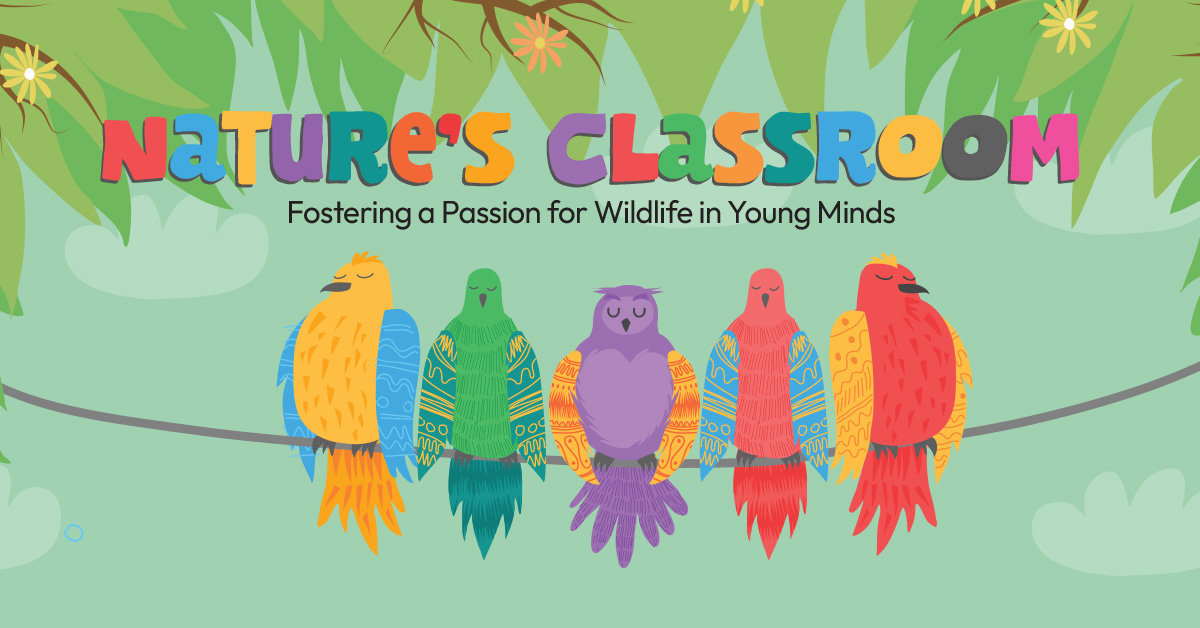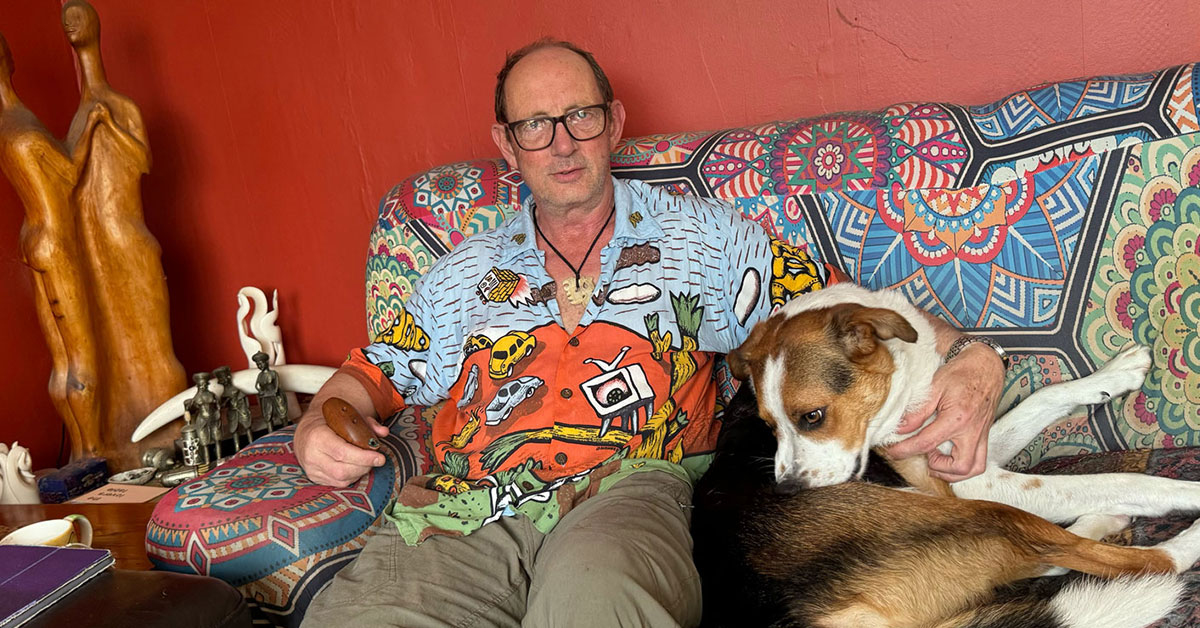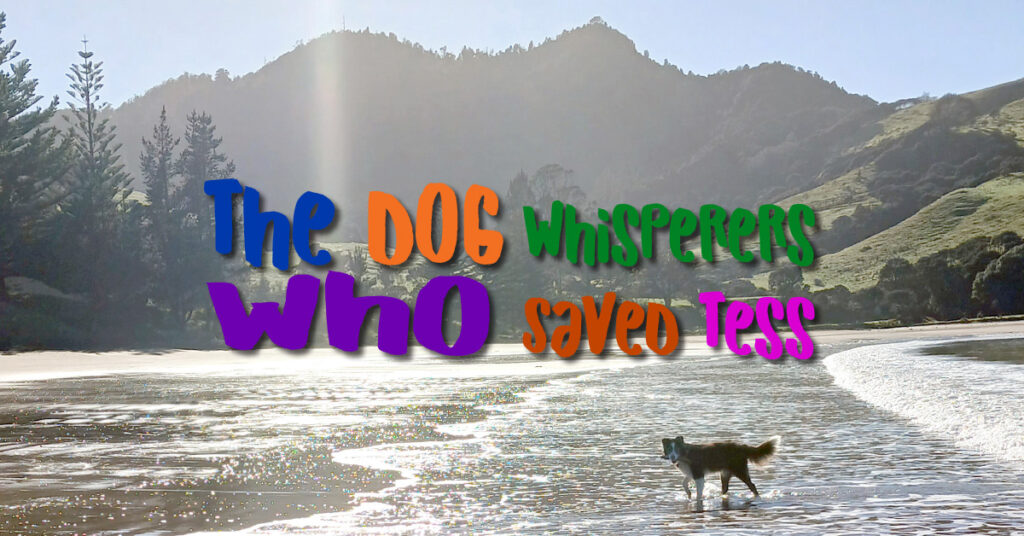
A dog’s fight against cancer
Johanna and I agonised over the decision to book our overseas trip in July because we were so worried about Tess. Thanks to Dave, our vet, Tess, our beloved Border Collie, is still with us despite being diagnosed with liver cancer. He had prescribed prednisone, a steroid, to control her cancer. It was working, and she was eating, albeit reluctantly. We visited Dave again, and he used an ultrasound to check if the cancer was still there. His diagnosis confirmed that it remained present.
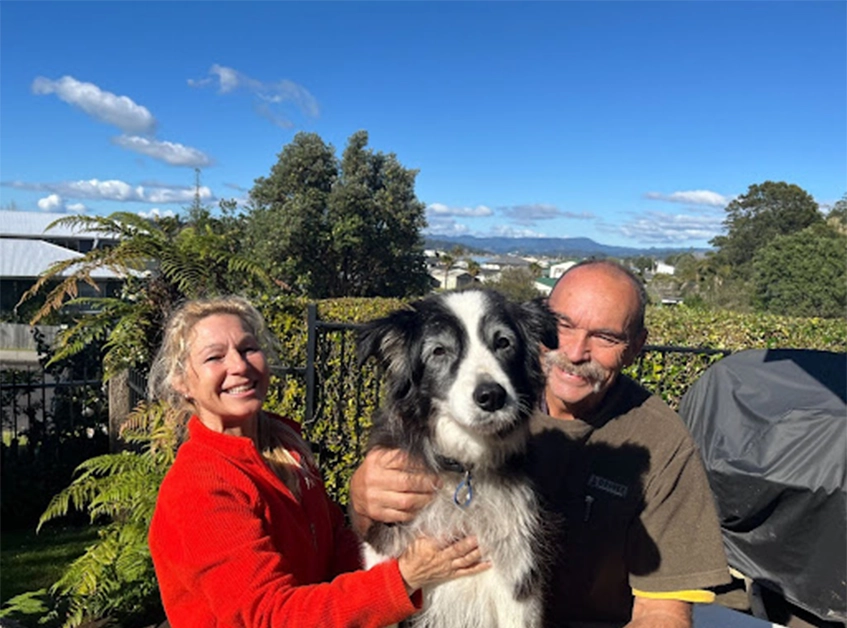
The key to finally agreeing to go on our trip was meeting Kim and Pete Donaldson, who live at the bottom of our street. They had started house-sitting and pet-sitting and came highly recommended by close friends. However, Tess’s condition seemed to worsen by the day, and she appeared frail, nearly skin and bone.
In Kim’s words, they decided, “No Auschwitz dog for us.” They were on a mission and, with intuition guiding them, they tried a range of feeding options.
Tess had never been very interested in food and was wary of new things, but they persisted, offering her all manner of natural treats, including beef jerky, venison with gravy, liver cookies, and more – making a game of it all. To our delight, they even sent pics of her at Wharekaho – her top beach. It gave us peace of mind.
A natural diet for dogs in the wild includes offal. Offal provides dogs with essential nutrients like vitamins, minerals, and high-quality protein, supporting their heart, immune, and digestive health. It also promotes healthy skin, a shiny coat, and improved energy levels.
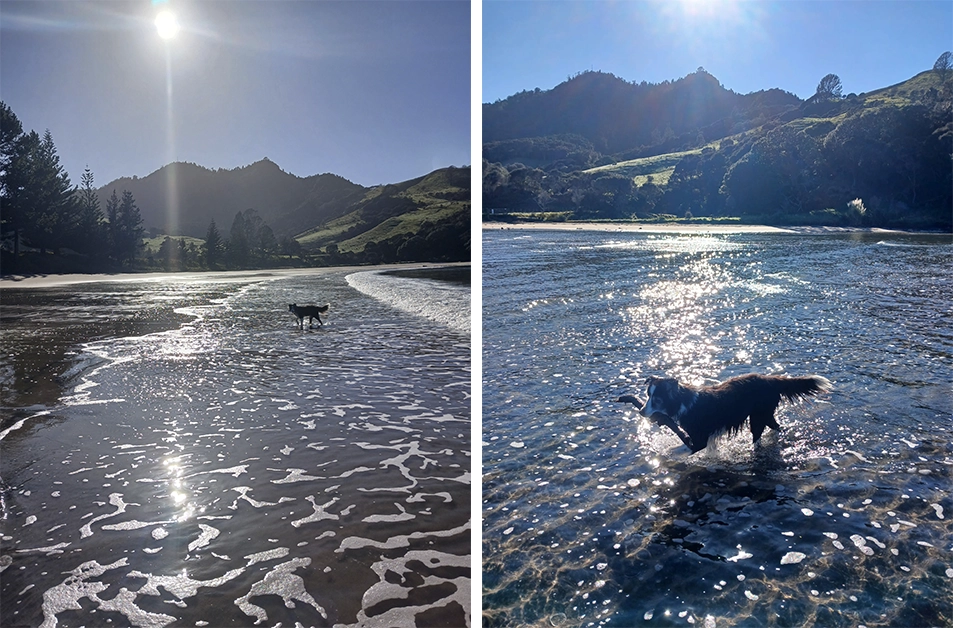
Tess shows all these benefits – it’s not rocket science. She continues on her stable diet of chicken, as we know that moderation is key to avoiding nutrient deficiencies. Her cancer symptoms are no longer evident, but regular visits to Dave will remain essential to monitor her progress.
In the process, Kim and Pete even managed to wean her off prednisone. Though prednisone was a great short-term treatment, long-term use can lead to serious side effects. As Dr David Boothe and other experts have noted, these can include increased thirst, weight gain, muscle wasting, a heightened risk of infections, gastrointestinal issues, skin problems, diabetes, and delayed wound healing.
Interestingly, when orcas hunt whales, they often target the most nutrient-rich parts, such as the liver and internal organs. These are energy-dense and vital to their survival. Similarly, after making a kill, lions consume internal organs like the liver, heart, kidneys and lungs first.
These organs are rich in essential nutrients, including proteins, vitamins, and fats, which are necessary for energy and health. Carnivores prioritise organs for their high nutritional content, followed by muscle and fat-rich areas – a strategy that ensures maximum caloric intake, especially when competition or limited time near the kill restricts their feeding.
Speaking of natural diets, Paul is on a mission to provide a program for kids with dyslexia. He has pioneered a way to mimic how our brains are naturally wired through storytelling. WordSmart systematically reveals students’ passions and helps them use their unique gifts to develop a positive mindset. Unlike other methods that have failed, WordSmart is making real progress.
Natural diets work best for both kids and dogs!
Words by Paul Blackman
Coromind: Coromandel’s Collaborative Magazine

Help us take Coromind Magazine to new heights by becoming a member. Click here
Change the Weather for Your Business: Advertise with Us.
Advertise your business in the whole Hauraki Coromandel in the coolest Coromandel Art Magazine, from Waihi Beach/Paeroa /Thames up to the Great Barrier Island.
Advertise Smarter, Not Harder: Get in Touch




